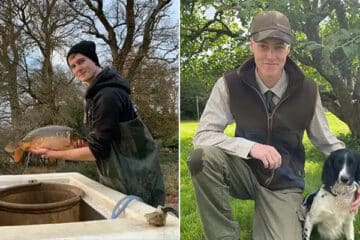The UK’s largest shooting organisation has warned that the Scottish government’s response to the deer working group report could have worrying implications for the welfare of Scotland’s deer.
The British Association for Shooting and Conservation (BASC) said it had ‘grave concern’ about the Scottish government’s direction of travel, and warned that seeking to normalise the culling of deer at night, shortening the close season for female deer and abolishing the close season for male deer could carry harmful animal welfare implications.
The deer working group report was submitted to the Scottish government in December 2019, and contained 99 recommendations with the capacity to fundamentally change the way deer are managed in Scotland. Over one year later, the Scottish government has finally responded to the report and has accepted the majority of the group’s proposals in principle.
The multitude of recommendations cover the group’s extensive remit, and include proposals to:
i) conduct trials with night sights without delay;
ii) repeal the prohibition on night sights subject to trial
success;
iii) remove close seasons for all male deer;
iv) significantly shorten the close season for all
female deer;
v) end the use of lead bullets when shooting deer; and vi) replace the current Deer (Scotland) Act 1996 in its entirety.
BASC Scotland Director, Dr Colin Shedden, said: “While there is much to be welcomed in the Scottish government’s response to the deer working group report – particularly with respect to the movement away from lead bullets and a commitment to modernise the Deer (Scotland) Act – there
are a number of areas which are a cause for grave concern.
“In particular, we are strongly opposed to the Scottish government’s view that the close season for female deer should be kept under review, possibly with a view to being shortened in due course. We argue that such a move could result in the orphaning of dependent calves and kids, meaning many
would die of starvation in the early Autumn. We are also concerned about the welfare implications – for both deer stalkers and the deer themselves – of culling heavily pregnant hinds and does in the spring.
“We do not accept that such an approach is in line with Scotland’s high standards of animal welfare, and we will be writing to Scotland’s newly established Animal Welfare Commission to make our concerns known on this matter. We would also like to remind the Scottish government that
Scotland’s deer are a natural asset, and we argue that they should be treated as such.
“In many situations local deer stalkers would be best placed to manage the ‘deer on their doorstep’ without having to resort to culling deer at night or when they have dependent offspring.”
Notes to the Editor:
- Dr Colin Shedden previously sat on the board of the Deer Commission for Scotland, the government agency responsible for deer until responsibility was handed to Scottish NaturalHeritage (now NatureScot) in 2010. Dr Shedden is also the current chairman of the Lowland Deer Network for Scotland (LDNS), and has been involved in deer management in Scotland for more than 25 years.
- We reference our opposition to the normalisation of culling deer at night for two reasons. First, practitioners involved in night shooting have expressed concern for deer welfare given some of the limitations of night vision equipment. Second, land managers have also expressed concern that the widespread use of night sights will make poaching virtually
undetectable. - We reference our opposition to the abolition of a close season for male deer for one main reason. There is evidence to show that male deer require protection after the rutting season due to the disturbance effect that shooting one male has on the other males. The deer working group and the Scottish government rebut these concerns by suggesting that there is nothing to stop a landowner from shooting male deer when they feel it is appropriate to do so, but this is a baseless argument when one considers that red deer in particular are inherently mobile, routinely moving between estates which could easily have divergent views on a voluntary close season.
- We welcome the intention to end the use of lead bullets when shooting deer, and we support the acceptance of the view that a reduction in bullet weight from 100 grains to 80 grains for species other than roe deer will be required – subject to research – for a full transition to non-lead ammunition to take place.
- The Scottish Animal Welfare Commission was established last year to focus on protecting wild and companion animals while also providing scientific and ethical advice to government. More information is available here.

